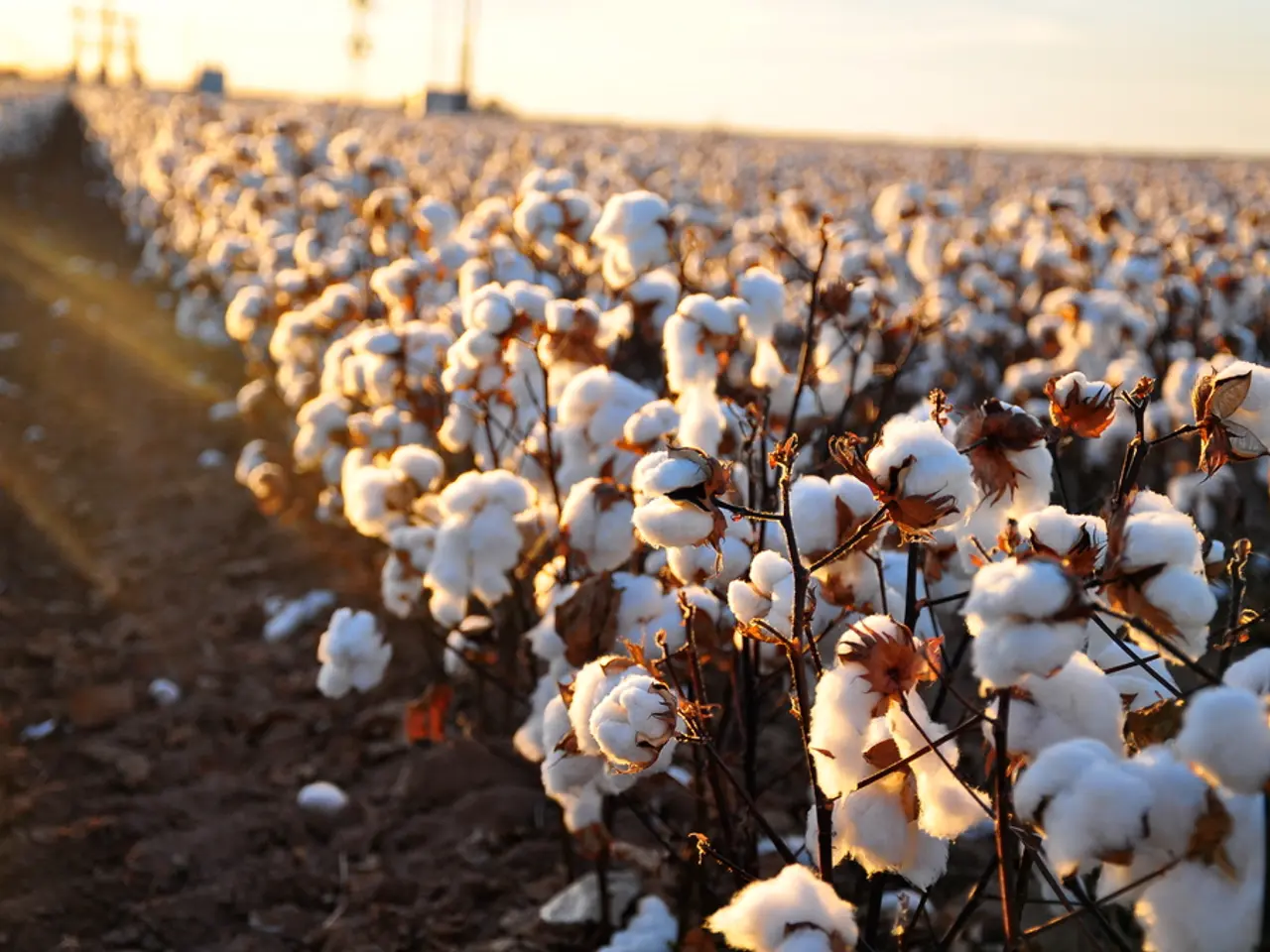Cold-weather Composting Technique: Sheet Layering
In the world of gardening, the colder months can present challenges for maintaining healthy soil. One common practice is winter sheet mulching, a method that involves covering the soil with plastic sheeting or impermeable tarps. However, recent research suggests that this approach may not be as beneficial as once thought.
Firstly, soil should ideally be covered during winter with organic matter, such as compost, straw, leaves, or wood chips. This not only insulates the soil but also prevents erosion and allows for slow decomposition. However, when covered with plastic, excess moisture can build up, promoting root diseases and harmful anaerobic bacteria.
Moreover, prolonged covering with plastic sheeting can lead to soil compaction due to the lack of earthworm activity. Earthworms play a crucial role in aerating the soil, and their absence can lead to reduced oxygen levels and harmful anaerobic conditions.
Winter is a critical recovery period for soil biology. Microbes and earthworms need oxygen, but plastic sheeting blocks air exchange, leading to anaerobic conditions that kill beneficial soil organisms. Additionally, the lack of plant roots means that there are no exudates to feed microbes, decreasing soil fertility.
Fungal networks (mycorrhizae) help plants absorb nutrients and water, but they die off when soil is covered with plastic sheeting. These networks are essential for plant health, and their absence can lead to nutrient deficiencies in the soil.
Rain hitting plastic runs off instead of infiltrating, causing nutrient leaching and surface crusting around the sheets. This can lead to an imbalance in the soil's moisture content, which can be detrimental to plant growth.
Organic matter breaks down without replenishment under plastic sheeting, depleting carbon reserves. This can lead to a decrease in soil fertility over time.
Black plastic may warm the soil temporarily, tricking plants into breaking dormancy too early, only to freeze later. This can be particularly harmful to winter vegetables, which are designed to withstand cold temperatures.
Instead of sheeting, using breathable, organic methods such as winter cover crops is recommended. Cover crops like clover, rye, or vetch protect the soil, fix nitrogen, and support microbial activity. A 2-3 inch layer of compost can moderate temperature, add nutrients, and further support microbial activity.
Biodegradable cardboard smothers weeds while allowing air and water exchange. This can be a good alternative to plastic sheeting, as it does not cause the same issues with soil health.
For those interested in gardening, there are several Facebook groups that can provide support and advice. These include "UK Garden Flowers, Trees, Shrubs & More", "Allotment Life For Beginners", and "How to Dig For Victory".
In Germany, winter sheet mulching can harm soil structure, reduce biodiversity, and interfere with essential soil processes. Proper mulching techniques are crucial for maintaining a healthy and productive garden.
StefanDrewe.substack.com is a great resource for those looking to learn more about gardening. By understanding the potential risks of winter sheet mulching, gardeners can make informed decisions and ensure the long-term health of their soil.
Read also:
- Long-Term Prescription Drug Impact on Brain Function
- Benefits, sources, and supplements for Vitamin D and its role in addressing osteoporosis
- Diabetes Management during Pregnancy: Keeping Tabs on Blood Sugar Levels and Lifestyle Adjustments
- Life Expectancy with Interstitial Cystitis: Exploration of Research, Treatment Methods, and Additional Information








